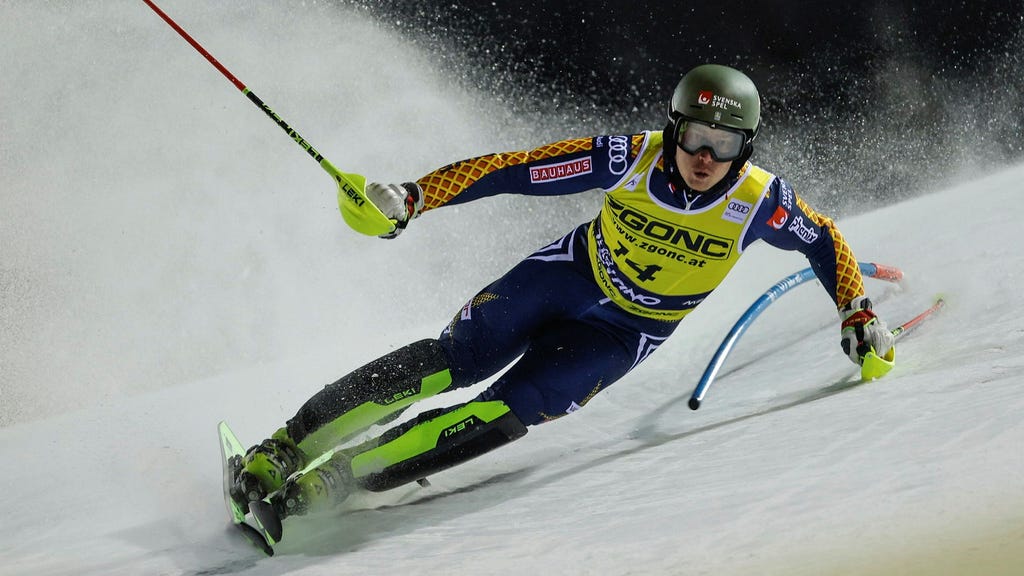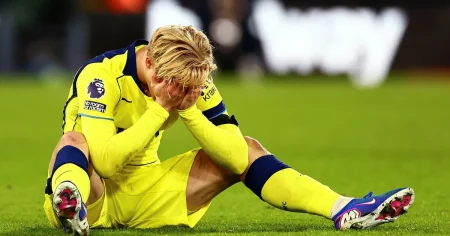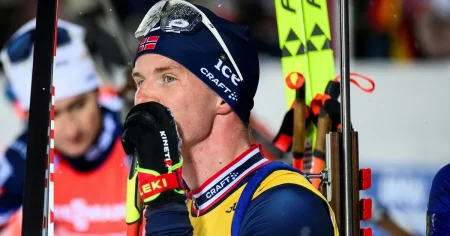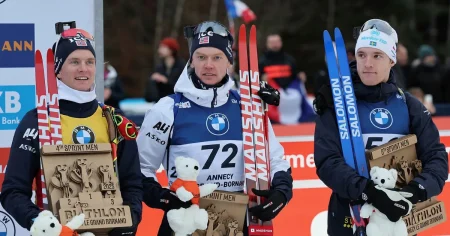Kristoffer Jakobsen’s frustrating start to the World Cup slalom season continued in Madonna di Campiglio, Italy, as the 30-year-old Swede registered his third consecutive first-run exit. This latest setback follows similar disappointments in Val d’Isère, France, and Alta Badia, Italy, where Jakobsen failed to complete the opening run, leaving him with zero points in the slalom standings. The Madonna di Campiglio race, known for its demanding slope and icy conditions, proved particularly challenging, with over 30 racers failing to finish the first run, highlighting the treacherous nature of the course and the high level of competition. Jakobsen’s early exits represent a significant blow to his overall World Cup aspirations, placing him in a difficult position to climb the rankings and contend for podium finishes.
The Madonna di Campiglio slalom, held under the floodlights on a steep and icy Canalone Miramonti slope, is traditionally one of the most technically challenging races on the World Cup circuit. The course setting, combined with the demanding snow conditions, contributed to the high attrition rate, with numerous racers, including top contenders, succumbing to the pressure and the inherent risks of pushing their limits on such a difficult course. Jakobsen’s struggles mirror those of many other racers who found the conditions insurmountable, illustrating the unforgiving nature of slalom skiing at this level, where even the slightest mistake can have devastating consequences.
For Jakobsen, the repeated early exits raise concerns about his form and approach to these demanding races. While the challenging conditions undoubtedly played a role, the consistency of his first-run failures suggests a potential underlying issue that needs to be addressed. Whether it’s a technical flaw in his skiing, a mental block, or a combination of factors, Jakobsen and his coaching team will need to thoroughly analyze his recent performances to identify the root cause and implement corrective measures. The pressure of competing at the highest level can be immense, and it’s crucial for athletes to maintain a positive mindset and a clear focus on their skiing technique, especially when facing adversity.
The victory in Madonna di Campiglio went to the unheralded Bulgarian skier Albert Popov, who capitalized on the challenging conditions and the demise of many favored racers to claim his first World Cup win. Popov’s impressive performance underscores the unpredictable nature of slalom skiing and the opportunities that can arise when top contenders falter. His victory also highlights the depth of talent in the World Cup field, demonstrating that skiers from smaller skiing nations can compete and succeed at the highest level. Popov’s triumph was a significant moment for Bulgarian skiing and serves as an inspiration to aspiring racers worldwide.
While Popov celebrated a surprise victory, the race was marked by the struggles of many established slalom specialists. The high attrition rate, with over 30 racers failing to complete the first run, highlights the extraordinary difficulty of the Madonna di Campiglio slalom. The icy and uneven surface, combined with the steep gradient and technically demanding course setting, pushed many skiers beyond their limits, leading to numerous errors and crashes. This challenging race served as a stark reminder of the fine margins that separate success and failure in slalom skiing, and the importance of maintaining precise technique and unwavering focus throughout the run.
For Kristoffer Jakobsen, the Madonna di Campiglio race represents another setback in his quest for World Cup success. The string of first-run exits is a cause for concern and requires a thorough assessment of his current form and approach. While the difficult conditions contributed to his struggles, Jakobsen must identify and address any underlying issues that may be hindering his performance. The road ahead will be challenging, but with dedicated training and a renewed focus, he can aim to overcome these setbacks and return to the competitive form that has seen him achieve success in the past. The World Cup season is long and demanding, providing opportunities for redemption and improvement. The key for Jakobsen will be to learn from his mistakes, maintain a positive mindset, and continue to strive for excellence in his pursuit of World Cup podiums.














